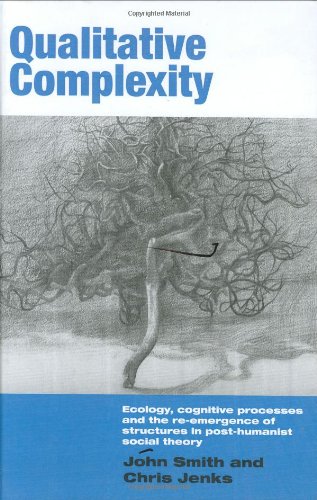

Most ebook files are in PDF format, so you can easily read them using various software such as Foxit Reader or directly on the Google Chrome browser.
Some ebook files are released by publishers in other formats such as .awz, .mobi, .epub, .fb2, etc. You may need to install specific software to read these formats on mobile/PC, such as Calibre.
Please read the tutorial at this link. https://ebooknice.com/page/post?id=faq
We offer FREE conversion to the popular formats you request; however, this may take some time. Therefore, right after payment, please email us, and we will try to provide the service as quickly as possible.
For some exceptional file formats or broken links (if any), please refrain from opening any disputes. Instead, email us first, and we will try to assist within a maximum of 6 hours.
EbookNice Team

Status:
Available0.0
0 reviews
ISBN 10: 0415439671
ISBN 13: 978-0415439671
Author: Chris Jenks , John Smith
Drawing from sources in sociology, philosophy, complexity theory, 'fuzzy logic', systems theory, cognitive science and evolutionary biology, the authors present a new series of interdisciplinary perspectives on the sociology of complex, self-organizing structures.
Part One: The Interdisciplinary Field
Chapter 1. Complexity Theory: a positioning paper.
Chapter 2. From Descartes’ Conjecture to Kant’s Subject & the Computo.
Chapter 3. Autopoiesis in Cognitive Biology.
Chapter 4. Emergentism, Evolutionary Psychology and Culture.
Chapter 5. Prigogine’s Thermodynamics, Ontology and Sociology.
Part Two: Critical Developments
Chapter 6. Modernism and Determinism: Linear Expectations and Qualitative
Complexity Analyses.
Chapter 7. Complexity Theory as a Critique of Postmodernism.
Chapter 8. Cognition and the Renewal of Systems Theory: redundant idioms and
disputed positions.
Chapter 9. The evolution of intelligence, consciousness and language: implications for social theory
Chapter 10. Complexity, Language and Culture: social systems in qualitative, i.e. not formal terms.
Part Three: The Fields of Complex Analysis: Contemporary Complexity Theory.
Chapter 11. The Ethics of Pragmatism: Politics and post-structuralism in transition after the complexity turn.
Chapter 12. The Topology of Complexity.
Chapter 13. Re-interpreting Global Complexity as an Ontology: Human Ecology
cognitive ecology definition
what is complexity in terms of a biological community
qualitative cognitive differences
integrative complexity examples